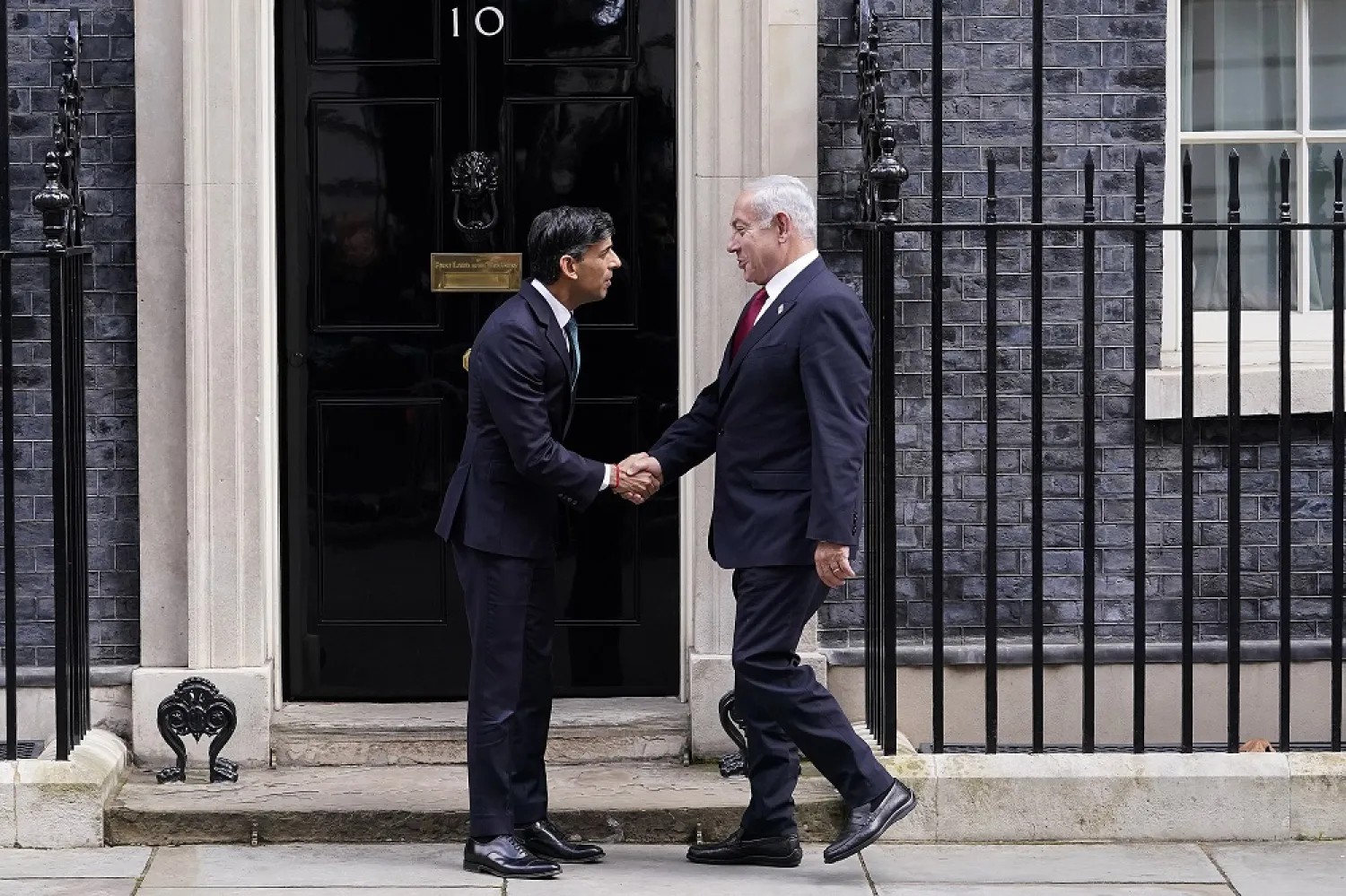British Prime Minister Rishi Sunak welcomed Benjamin Netanyahu at his official residence in London on Friday as protesters shouting “Shame!” in Hebrew demonstrated against the Israeli leader’s right-wing policies and his plans to overhaul the country’s judiciary.
Netanyahu had to pass by hundreds of protesters waving Israeli flags and waving signs calling for the defense of Israeli democracy as he arrived for talks that are expected to focus on concerns about Iran’s nuclear program.
“We are Israelis and Jews living in the UK demonstrating against Prime Minister Netanyahu, who is leading a judicial coup turning Israel into a dictatorship,” one placard read.
Netanyahu arrived in London as protesters in Israel blocked roads and clashed with police over his right-wing government’s plans to overhaul the judicial system. The proposals have ignited the biggest protests in the country’s history amid rare dissent from people throughout Israeli society, including military reservists, navy veterans, high-tech businesspeople and former officials.
Netanyahu’s proposals would give his government more control over judicial appointments, weaken the Supreme Court by limiting judicial review of legislation and allow Parliament to overturn court decisions with a simple majority vote.
The Israeli government has also been criticized for its hard-line policy toward Palestinians, including recent comments by a government minister who denied the existence of the Palestinian people and their right to self-determination.
The British government has released little information about Sunak’s talks with Netanyahu and no news conference has been scheduled for the two leaders.
Netanyahu’s office said the talks with Sunak and other British officials would center on the rapidly advancing nuclear program of Israel’s archenemy, Iran.
“At the center of their meeting will be … the need to form a unified international front against Iran with the goal of stopping the nuclear program,” his office said in a statement.
As thousands of people took to the streets across Israel on Thursday, Netanyahu, who is on trial for corruption, defiantly pledged to proceed with the judicial overhaul, hours after his coalition passed a law making it harder to remove him from office.
Rights groups and Palestinians say Israel’s democratic ideals have long been tarnished by the country’s 55-year, open-ended occupation of lands the Palestinians seek for an independent state and the treatment of Palestinian Israeli citizens, who face discrimination in many spheres.
Netanyahu pushed back his departure to Britain until 4 a.m. Friday to deal with the political crisis.









